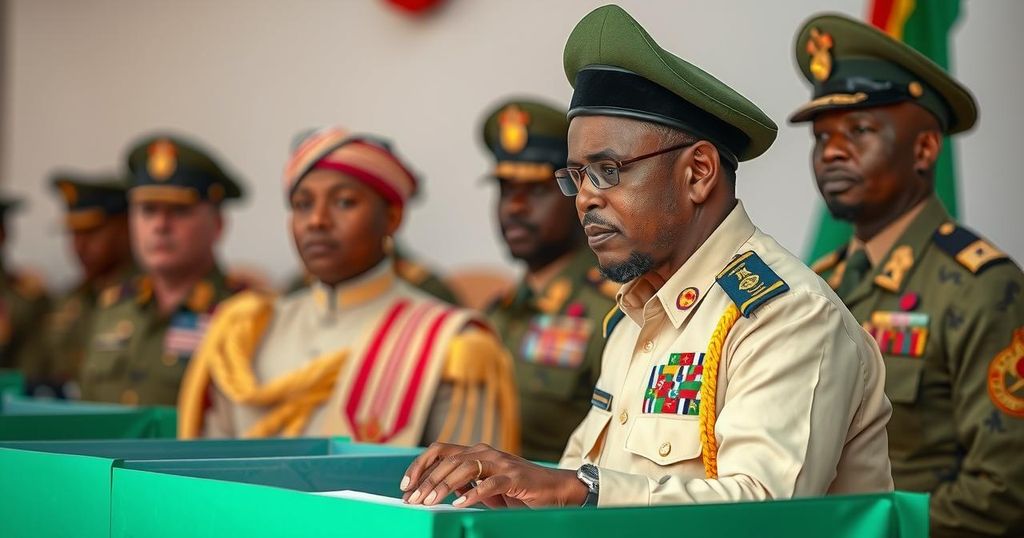Chad Votes in General Election Amid Calls for Boycott and Skepticism

Chad held general elections amid military rule with a low turnout of about 38%, largely due to an opposition boycott alleging predetermined results. President Mahamat Idriss Deby Itno, who came to power in a military coup, promoted the elections as a significant step towards democracy. Voter skepticism and claims of electoral fraud overshadowed the process as participants sought tangible change in the socio-political landscape.
Chad conducted general elections on Sunday, an essential move that the government asserts is a critical step towards dismantling three years of military rule. However, voter turnout was significantly low at approximately 38 percent, largely attributed to a boycott encouraged by opposition parties. The leader of the opposition, Succes Masra, remarked that the majority of the population complied with their call to abstain, claiming that the election’s outcomes were predetermined. As a result, candidates affiliated with the military-backed President Mahamat Idriss Deby Itno may dominate the elections. Deby, seeking legitimacy after a controversial presidential election in May, urged citizens to participate and labeled the day as historic.
Despite government claims, many citizens expressed skepticism regarding the electoral process. Individuals like Herve Natouingan perceived voting as futile, stating that there is “no real voting in Chad.” Conversely, some citizens, including Patrice Lumumba Deoumoundou, chose to vote in hopes of prompting comprehensive change in the nation’s socio-economic conditions. In the lead-up to voting day, allegations of electoral fraud emerged, including reports of missing ballots. This election takes place amid ongoing security challenges posed by Boko Haram in the Lake Chad region and the cessation of a military agreement with former colonial power France.
The electoral process in Chad has been heavily influenced by a backdrop of military rule and political unrest. Following the death of former President Idriss Deby in 2021, his son, Mahamat Idriss Deby Itno, usurped power, prompting widespread discontent and skepticism towards the legitimacy of the current regime. Despite government assertions that elections mark a transition towards democracy, opposition factions have raised concerns over rigged processes and a lack of genuine political competition. Public participation, particularly in the wake of calls to boycott the elections, reflects a deep mistrust in the political system.
The recent elections in Chad underscore a critical juncture in the nation’s quest for democracy. While the government promotes the elections as a step towards political reform, the low turnout and opposition-led boycotts reveal significant public disillusionment with the political process. The competing narratives between the ruling party and opposition groups highlight the ongoing challenges in Chad’s transition from military rule to a democratic society, cloaked in allegations of electoral fraud and public apathy towards the electoral system.
Original Source: www.wyomingnewsnow.tv







